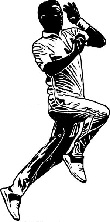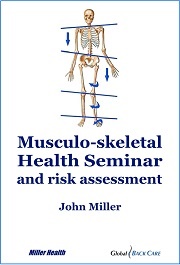|
|
|
|||||||||||||||||||||||||||||||||||||||||||||||||||||||||||||||||||||||||||||||||||||||||||||||||||||||||||||||||||||||||||||||||||||||||||||||||||||||||||||||||||||||||||||||||||||||||||||||||||||||||||||||||||||||||||||||||||||||||||||||||||||||||||||||||||||||||||||||||||||||||||||||||||||||||||||||||||||||||||||||||||||||||||||||||||||||||||||||||||||||||||||||||||||||||||||||||||||||||||||||||||||||||||||||||||||||||||||||||||||||||||||||||||||||||||||||||||||||||||||||||||||||||||||||||||||||||||||||||||||||||||||||||||||||||||||||||||||||||||||||||||||||||||||||||||||||||||||||||||||||||||||||||||||||||||||||||||||||||||||||||||||||||||||||||||||||||||||||||||||||||||||||||||||||||||||||||||||||||||||||||||||||||||
|
Health Fitness and Wellbeing Seminar Results |
||||||||||||||||||||||||||||||||||||||||||||||||||||||||||||||||||||||||||||||||||||||||||||||||||||||||||||||||||||||||||||||||||||||||||||||||||||||||||||||||||||||||||||||||||||||||||||||||||||||||||||||||||||||||||||||||||||||||||||||||||||||||||||||||||||||||||||||||||||||||||||||||||||||||||||||||||||||||||||||||||||||||||||||||||||||||||||||||||||||||||||||||||||||||||||||||||||||||||||||||||||||||||||||||||||||||||||||||||||||||||||||||||||||||||||||||||||||||||||||||||||||||||||||||||||||||||||||||||||||||||||||||||||||||||||||||||||||||||||||||||||||||||||||||||||||||||||||||||||||||||||||||||||||||||||||||||||||||||||||||||||||||||||||||||||||||||||||||||||||||||||||||||||||||||||||||||||||||||||||||||||||||||||
|
Chucka Musculo-skeletal health seminars
John Miller conducted a series of 2 hour musculo-skeletal health seminars in July and December 2023.
94 participants (58 men and 36 women) completed the Health, Fitness and Wellbeing profile.
Here is the download link to the seminar workbook - containing the assessments participants completed.
The results are presented in graphic format, with commentary.
THE CONTEXT
The health of the community is in decline. You only have to look around you to see that a lot of people are not in good physical condition.
Workplaces are at risk, particularly of personally-generated metabolic, musculo-skeletal and mental health dysfunctions being treated as work-related injuries by workers compensation insurers.
Rarely is health, fitness and wellbeing measured, managed and monitored - in the community or in workplaces. 'Fitness' is the word that dare not speak its name.
The following online resources highlight the issues involved:
Feel free to download these booklets and spreadsheets.
HEALTH CLIMATE SURVEY RESULTS As well as the musculo-skeletal health assessments, the Health Climate Survey is also included in the seminar 'package'. It provides people with a very good idea of how well the various systems of the body are functioning, particularly the
• the mind • autonomic nervous system • immune system • digestive system • circulatory system • elimination system • musculo-skeletal system.
On this profile a good score is a low score.
The score of a normal, fit and healthy human being is less than 20. A score between 21 and 40, is considered to 'pretty good'. Higher scores are symptomatic of dysfunction of one or more body systems. People with low levels of fitness and high levels of stress usually score well over 80.
For people with a score of more than 80, the ‘background noise’ of their life is becoming louder and louder to the point where it becomes 'deafening'.
It is hard to concentrate on your work when body systems are dysfunctional.
We know a fit and healthy group when we see the majority of scores are below 60.
By and large, higher scores are usually a reflection of
• low levels of fitness
• an inability to deal with what life and work are serving up to people.
Remember, it is not what happens, but how we deal with what happens that determines our level of stress.
Classification of average scores: Excellent - less than 40. Good - 41 - 50. Reasonable 51-60. Poor - over 60.
Compared with other groups, this profile is a fair result. But there again, none of the Health Climate Survey results are very encouraging. Too many people are in poor physical condition. The average score was 64
As already mentioned, anyone scoring more than 80 is putting up with a lot of 'background noise'.
The table below highlights the issues of most concern. They need to be addressed by both the organisation and individual seminar participants.
Poor health, fitness and wellbeing sucks the life out of individuals and organisations.
46% of people admitted that were in poor musculo-skeletal health - due to a lack of a regular and systematic flexibility and strength training program. Without it, tight muscles take the skeleton out of alignment and weak muscles fail to support the skeleton as it goes about its daily tasks. The net result, joint and muscle pain (which are the symptoms of skeletal misalignment and lack of strength). It's a system problem: fix the system and the parts will take care of themselves.
The epidemic of musculo-skeletal dysfunction within the organisation places the organisation's workers compensation arrangements at risk, as people submit claims 'work-related injuries' - which have, as their principal cause, personally-generated musculo-skeletal dysfunction.
It is highly recommended that all staff participate in a regular 10 minute strength and flexibility session.
Even better still it would be good if the local fitness centre could hold regular 'Back-in-Alignment' musculo-skeletal classes, with staff in poor condition being obliged to attend. (After all, the organisation is paying their workers compensation premiums!)
Too many people (36%) reported being over weight. Of these, a number were carrying more than 20 kilograms of excess adipose tissue.
A higher percentage than normal (21%) were people with high blood pressure, particularly those who are on medication. High blood pressure is a symptom of poor metabolic health - improved by a regular and systematic aerobic fitness program, a healthy diet - low in junk food, ie the Garbohydrates (yep that's 'G' not a 'C') - high in combinations of fat, flour and sugar.
Only 5% smoked. This is a pleasing result well below the community average of (circa)10%. Now let's aim for zero - and save on the housekeeping!
There is a relatively high incidence of anxiety - caused by the stress of life, coupled with poor metabolic health - generated by low levels of aerobic fitness. One of the benefits of a regular and systematic aerobic fitness training program is ,'you feel better'.
An interesting observation is that, whereas only 10% of people said they were in the wrong job, 27% said they were under-appreciated at work. On the other hand only 21% of people said they were it the wrong job. There is work here for managers to lower the level of dissatisfaction.
All in all, these Health Climate Survey results are a call for the organisation to do all within it's power to support a program designed to assist staff to become fitter, healthier and more appreciated.
MUSCULO-SKELETAL HEALTH RESULTS
1. Subjective joint and muscle condition assessment - a good score is a high score
People were asked to rate the condition of major joint and muscle groups.
2. Musculo-skeletal risk assessment - a good score is a high score
It sticks out like the proverbial: more than 50% of people don't have a regular and systematic strength and flexibility training program. Musculo-skeletal systems lacking strength and flexibility (particularly hamstring and buttock) are at risk of joint and muscle pain.
From the results outlined in these two assessments, there is a good case for people who scores poorly to be enrolled in a Back in Alignment and Complete Fitness Workout program at a local fitness centre. In fact there is a compelling case for all staff to be involved in these programs, supervised by a fitness practitioner who is trained to address the musculo-skeletal issues raised in the Musculo-skeletal Health Seminar.
Want to improve your health? John Miller's ebooks will set you on the right path
How to improve your fitness If you want to improve your fitness click on this link:
http://www.completefitnessworkout.com/
Quit smoking If you want to quit smoking click on this link:
https://www.fitandhealthyonline.com/how-you-can-stop-smoking/
Lower your blood pressure If you want to lower your blood pressure click on this link:
http://www.howto-lowerbloodpressure.com/
Get your musculo-skeletal system back into good shape and pain free. If you want to fix up any of your musculo-skeletal health problems click on this link:
How to eat better and get back closer to your ideal weight If you've got an eating problem, click on this link:
Miller Health 7 Salvado Place Stirling ACT 2611 (02) 6288 7703
|
||||||||||||||||||||||||||||||||||||||||||||||||||||||||||||||||||||||||||||||||||||||||||||||||||||||||||||||||||||||||||||||||||||||||||||||||||||||||||||||||||||||||||||||||||||||||||||||||||||||||||||||||||||||||||||||||||||||||||||||||||||||||||||||||||||||||||||||||||||||||||||||||||||||||||||||||||||||||||||||||||||||||||||||||||||||||||||||||||||||||||||||||||||||||||||||||||||||||||||||||||||||||||||||||||||||||||||||||||||||||||||||||||||||||||||||||||||||||||||||||||||||||||||||||||||||||||||||||||||||||||||||||||||||||||||||||||||||||||||||||||||||||||||||||||||||||||||||||||||||||||||||||||||||||||||||||||||||||||||||||||||||||||||||||||||||||||||||||||||||||||||||||||||||||||||||||||||||||||||||||||||||||||||

